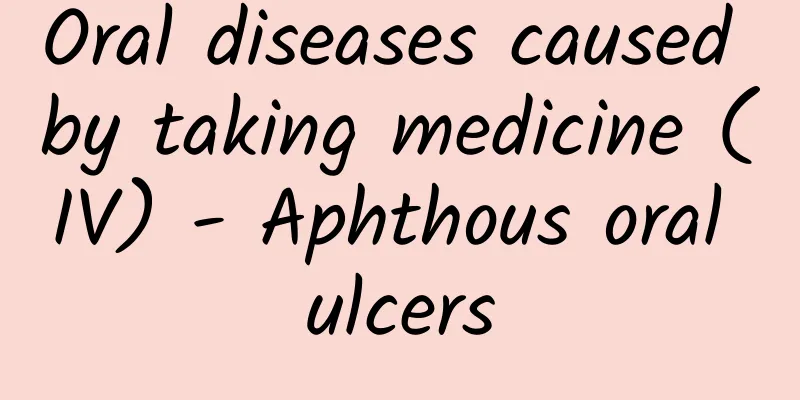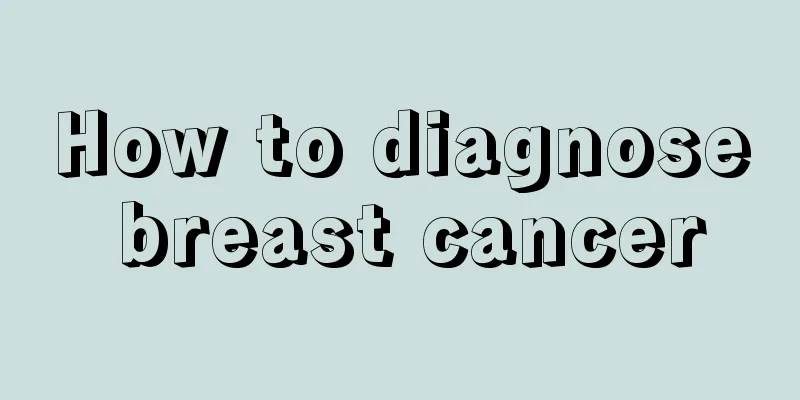Oral diseases caused by taking medicine (IV) - Aphthous oral ulcers

|
Many people are familiar with oral ulcers. The most common type of oral ulcer in life is recurrent aphthous ulcer, also known as recurrent aphthous ulcer. It is one of the common oral mucosal diseases with unknown etiology and is prone to recurrence. Unlike recurrent aphthous ulcers, drug-induced oral ulcers, aphthous-like oral ulcers, have relatively clear causes. When the underlying cause is effectively controlled, these ulcers will disappear. There are several types of drugs that may cause drug-induced oral ulcers. 1 Nonsteroidal anti-inflammatory drugs Nonsteroidal anti-inflammatory drugs (NSAIDs) were the first class of drugs found to be associated with aphthous oral ulcers. Piroxicam , which may contain a thiol group, can cause this type of ulcer. In addition, naproxen and rofecoxib are also associated with the occurrence of aphthous oral ulcers. 2 Mammalian target of rapamycin inhibitors Patients with metastatic disease treated with mammalian target of rapamycin (mTOR) inhibitors , such as sirolimus , temosilimus , everolimus, and lidaformolimus, develop aphthous oral ulcers. Unlike idiopathic recurrent oral ulcers, these ulcers resolve completely without recurrence after cessation of treatment. Source: References 3 Conventional chemotherapy drugs Conventional chemotherapy drugs, such as 5- fluorouracil , cisplatin , methotrexate , and hydroxyurea, are orotoxic and can cause oral ulcers and ulcerative mucositis. These ulcers tend to be larger and more diffuse, and their appearance differs from the oval, well-defined, recurrent aphthous ulcers. 4 Other drugs Mycophenolate mofetil has been reported to cause ulcers on the tongue, palate, lips, and gums of solid organ transplant recipients, but these ulcers resolve after discontinuation of the drug, as with tacrolimus. Rare cases of ulcers associated with multitargeted kinase inhibitors (MTKIs) have also been reported. In addition, trimethoprim-sulfamethoxazole (Compound Xinruoming) and losartan (angiotensin receptor blocker antihypertensive drug ) are also related to the occurrence of aphthous oral ulcers. References [1] Yuan A, WooSB. Adverse Drug Events in the Oral Cavity[J]. Dermatol Clin, 2020, 38(4): 523-533. |
>>: What is the difference between soy milk, soy juice and soy milk? Can they replace milk?
Recommend
Pregnant 4 weeks stomach pain like dysmenorrhea
Giving birth is a joyous event for both a woman a...
Is brown discharge during non-menstrual period a cause of abnormal vaginal discharge?
Today we are going to talk about whether brown di...
What causes bleeding in women during sexual intercourse?
Sexual life has many benefits for women, such as ...
The medication is too early to be discharged
If you have a medical abortion too early, the res...
What are the characteristics of menopause in women
After the age of fifty, women will enter menopaus...
【Health Lecture】Cardiopulmonary Exercise Between Breathing
In order to ensure the scientific effect of learn...
Illustration of female chest muscle exercises
It is necessary for women to train their chest, b...
Chin hyaluronic acid injection caused inflammation and swelling
Some people's chins are not particularly beau...
There is only a little blood after the abortion
For some women who want to terminate their pregna...
Urethra pain after going to toilet
If you feel pain in your urethra after going to t...
How to have an abortion during early pregnancy
In today's society, more and more female frie...
Can I have sex after the fertilized egg has implanted?
It is not easy for women to have children. Pregna...
What should I do if my butt gets bigger after giving birth?
What should I do if my butt becomes bigger after ...









